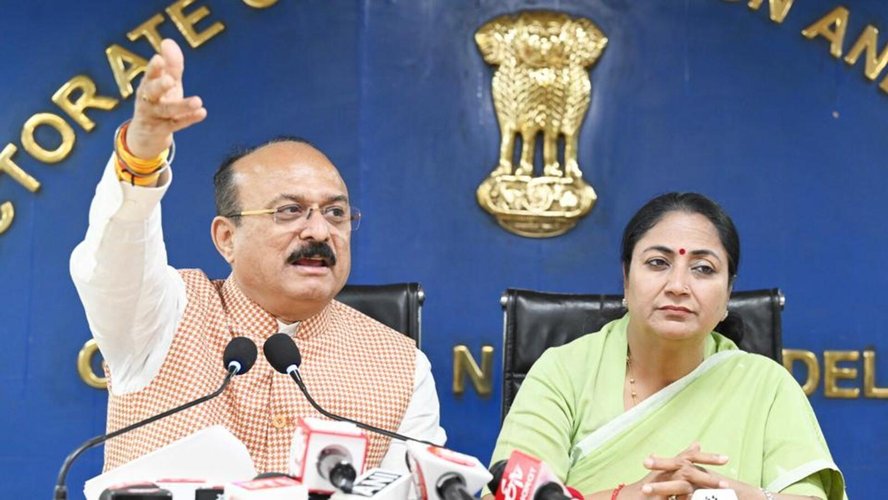Delhi Cabinet Approves Draft of Delhi School Education Bill 2025, Bringing Transparency and Regulation to School Fees
The Delhi Cabinet has approved the draft of the Delhi School Education Bill 2025, which aims to bring transparency and regulation to school fees in the city. The legislation is seen as a bold and historic attempt to curb arbitrary fee hikes by private schools.

Delhi Cabinet Approves Draft of Delhi School Education Bill 2025
The Delhi Cabinet, led by Chief Minister Rekha Gupta, has given the green light to the draft of the Delhi School Education (Transparency in Fixation and Regulation of Fees) Bill 2025. This legislation is a significant step towards reining in arbitrary fee hikes by private schools in the city.
Three Major Reforms
The proposed law, applicable to all 1,677 private unaided schools in Delhi, introduces three major reforms in the city's fee regulation regime.
- Three-Tier Fee Regulation Structure: The bill envisions a three-tier fee regulation structure involving committees at the school, district, and state levels. These committees will institutionalize parental participation in the fee regulation process.
- Stiff Penalties for Non-Compliance: Schools found violating the provisions, such as raising fees without approval, can face fines ranging from ₹1 lakh to ₹10 lakh. Repeat offenders could lose government recognition altogether.
- Parameters for Fee Determination: The third reform outlines parameters that must be considered while determining fees, including the school's location, infrastructure quality, academic performance, and need for funds. This move aims to bring consistency and transparency to a previously opaque and disputed area.
Empowering Parents
Education Minister Ashish Sood emphasized that the draft bill prohibits fee hikes without government permission and ensures that all decisions are made in consultation with stakeholders. The new law is expected to provide parents with clarity and confidence in making informed choices regarding their children's education.
Implementation Timeline
Under the proposed timeline, schools must establish their school-level committees by July 15 and submit their fee proposals by July 31. Final decisions will be made by September 15. If no further suggestions are made, the proposal will move to the district-level committee by September 30.
By October, parents will be informed of the fees and given time to consider their options. This structured approach aims to empower parents and bring accountability to the fee regulation process.
Political Response
The Aam Aadmi Party (AAP) raised concerns that the bill curtails parental rights by requiring joint applications for complaints. They viewed the bill as a tool to suppress parental voices, while the Delhi Bharatiya Janata Party (BJP) praised the legislation as a long-overdue response to years of exploitation in the education sector.
In conclusion, the Delhi Cabinet's approval of the draft Delhi School Education Bill 2025 represents a significant move towards ensuring transparency and regulation in school fees, benefitting both parents and students in the city.